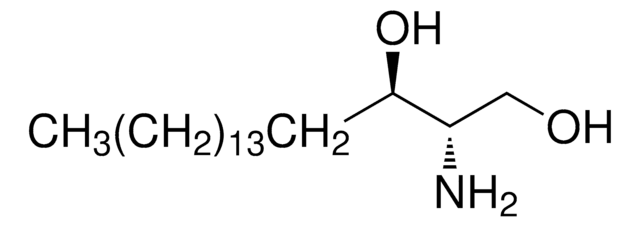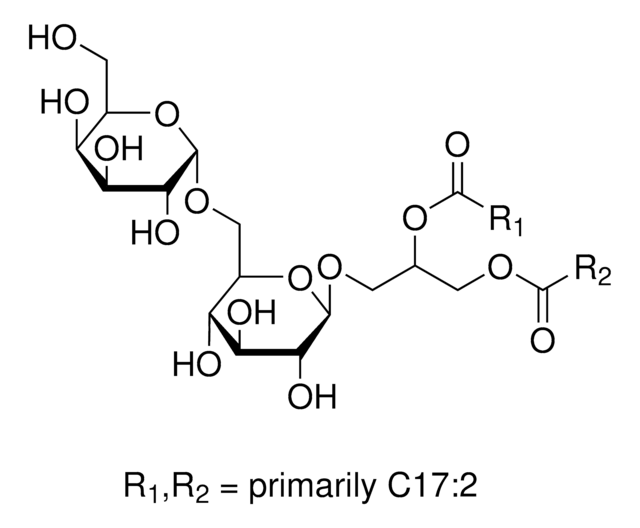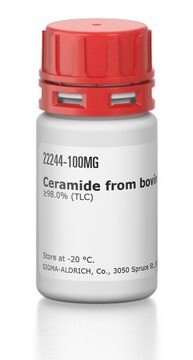P2795
Phytosphingosine hydrochloride
Synonym(s):
4-Hydroxysphinganine, D-Ribo-1,3,4-trihydroxy-2-aminooctadecane, D-Ribo-2-aminooctadecane-1,3,4-triol, PHS
About This Item
Recommended Products
form
powder
Quality Level
greener alternative product score
old score: 19
new score: 9
Find out more about DOZN™ Scoring
greener alternative product characteristics
Less Hazardous Chemical Syntheses
Safer Solvents and Auxiliaries
Use of Renewable Feedstocks
Learn more about the Principles of Green Chemistry.
sustainability
Greener Alternative Product
greener alternative category
lipid type
sphingolipids
storage temp.
−20°C
SMILES string
Cl.CCCCCCCCCCCCCC[C@@H](O)[C@@H](O)[C@@H](N)CO
InChI
1S/C18H39NO3.ClH/c1-2-3-4-5-6-7-8-9-10-11-12-13-14-17(21)18(22)16(19)15-20;/h16-18,20-22H,2-15,19H2,1H3;1H/t16-,17+,18-;/m0./s1
InChI key
GDKAAHDFPOWGQE-RXQQAGQTSA-N
Looking for similar products? Visit Product Comparison Guide
Biochem/physiol Actions
Storage Class Code
11 - Combustible Solids
WGK
WGK 2
Flash Point(F)
Not applicable
Flash Point(C)
Not applicable
Personal Protective Equipment
Certificates of Analysis (COA)
Search for Certificates of Analysis (COA) by entering the products Lot/Batch Number. Lot and Batch Numbers can be found on a product’s label following the words ‘Lot’ or ‘Batch’.
Already Own This Product?
Find documentation for the products that you have recently purchased in the Document Library.
Customers Also Viewed
Our team of scientists has experience in all areas of research including Life Science, Material Science, Chemical Synthesis, Chromatography, Analytical and many others.
Contact Technical Service














